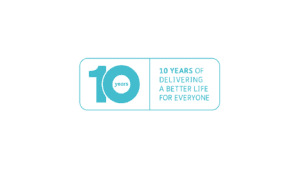New Technology in Care
New technology in care is revolutionising the way we support people and artificial intelligence is quickly making an impression on the social and health care sectors. From the latest smartwatches recording our morning runs to electronic care planning systems and even robot surgery! New innovative tech systems and devices are collecting data and analysing trends to identify patterns, and cross-referencing patient data in order to gain quick and reliable insight. While some are celebrating AI’s ability to revolutionise the way we care, many still fear this technology and see it as a threat to their personal security, something we have looked at previously ‘Electronic Care Planning: Change Doesn’t Need to Be Feared’
A large part of this fear is down to education, and in order to encourage not just care professionals, but anyone and everyone who interacts with the world of care, to have confidence in these technologies, it’s important to highlight the great benefits that they offer to the lives of those we love and care for.
In this article, we’ll be looking at some of the latest technologies that are enhancing the world of care management through data analysis and the well-being of those in care.
Virtual Reality Therapy
One of the new technologies we are seeing revolutionising the way we care is Virtual Reality (VR) headsets, which could soon become standard in dementia care homes. More than just a form of entertainment, some recent small studies suggest that VR environments could help trigger old memories in seniors, helping to make them feel less alone and confused.
Not only does this have positive effects on those living with dementia, but it improves their relationship with their carers and families too. It can reduce aggressive behaviour in patients and allows carers to gain better insight and understanding of those they’re caring for, thus improving caring interactions.
Continuous Glucose Monitoring (CGM) System
The FDA has recently approved the first version of a Glucose Monitoring System, which can be implanted just below the skin and has a sensor that can be worn for up to 90 days. These systems continuously monitor sugar levels and send data to a display device, and they also allow you to set up alerts for high, low or significant changes.
This will allow carers to monitor those with chronic diseases like diabetes much more closely, including during the night, and they can track trends in changes to sugar levels. A CGM also reduces the need to do finger prick tests and allows you to administer more accurate doses of insulin. Ultimately this device enables carers to act quicker and care better.
5G
5G is quickly changing the efficiency of social care. With analogue signals soon to be switched off, 5G will allow much faster, safer and more reliable handling of data. 5G offers speeds up to 10 x faster than 4G, and it’s being used in a number of ways to provide support, including remote monitoring.
Remote monitoring can benefit elderly or vulnerable groups who receive care as it can reduce the number of trips they need to take to the hospital. Care professionals can receive and analyse data, as well as share data securely and in real time. Devices powered by 5G could help carers detect problems earlier, and refer and exchange data with other care professionals for more accurate and better quality care.
Smart technology
Smart technology has been on the scene for a little while now, but it remains one of the leading technologies revolutionising the way we care. Homes are kitted out with everything from smartphones to energy meters and assistive technology like Alexa or Google. And this is no different in a care environment. Carers are quickly beginning to adopt a digital way of working, using electronic care planning systems (like Nourish), to enhance the way they care.
Many organisations in the care sector are now seeing the benefits of going paperless. Not only is it more environmentally friendly, but it allows for far more accurate data capturing, recording at the point of care, and most importantly, more person centred care because staff are no longer having to take hours doing admin tasks.
While many of these technologies may still seem like something from the distant future, 2020 is seeing a far more encouraging approach to integrating into the world of digital, with some of these things already being used by social and healthcare professionals.







